Andy Anderson explains how the UK government has hoodwinked the Scottish People - and our legislators - into believing that English Law is supreme over Scots Law. But it can’t be since the Treaty of Union preserved the independence of Scots law which derives its authority from the sovereign Scottish People. He asks the Scottish administration to Respect Scottish Sovereignty by implementing the International Covenant on Civil and Political Rights (ICCPR) into Scots law so the Scottish People can use their sovereign power to determine the form of government they want.
Jurisprudence is the “theory or philosophy of law.” But whose law?
The UK establishment is using English, not Scots, law to blatantly hoodwink the Scottish People in order to deny them their Civil and Political Rights.
My MSP recently told me that he was only prepared to act in accordance with what he called “real law.”
He was referring to the UK Supreme Court (UKSC) whose laws and interpretation of those laws he considered to be “real” and therefore must be respected and obeyed. His view on whether a law was real or unreal was whatever the civil servants advised him.
This is troubling. He’s an elected legislator yet doesn’t understand the basic principles of jurisprudence. He’s a democrat, a free-thinking citizen of a democratic society, but seems to accept, without question, that the “real” laws he’s compelled to comply with, whether he likes them or not, aren’t laws he has the right to create, or amend. They come from a ‘higher authority’ and like any subject in a monarchy or dictatorship, his duty is to obey the law, not to question it.
Legal systems aren’t created in a vacuum but within a political entity, and are designed to apply to all the people under that entity. The political entity, or state, may be a monarchy, a one-person dictatorship, an oligarchy, or a democracy, but there must be a state and some form of “sovereignty” in that state, because a legal system needs a sovereign power from which to draw its authority, otherwise there will be civil division or even civil war.
Scotland has had its own legal framework and sovereign authority for centuries - the Scottish People. Scotland, by international treaty, shares in the Westminster Parliament, and is therefore subject to parliamentary statutes passed by the Westminster Parliament, provided they comply with and don’t breach Scottish constitutional law or challenge Scottish sovereignty.
Another vital aspect of jurisprudence is that all laws must be respected, or at least tolerated, by the great majority of the people in the political entity, because if a substantial minority of the people refuse to tolerate a law then law enforcement, no matter how brutal, can’t sustain that law.
That principle was clearly illustrated in legislation to force the people of Skye to pay a high price to cross the bridge to the mainland or face a criminal charge.
The small population didn’t tolerate this law and eventually the big powerful state had to abandon it.
The so-called UK Supreme Court (UKSC) flies in the face of these basic principles of jurisprudence. There’s a UKSC, but there are no other UK courts, because there is no UK legal framework. The UKSC is supposed to act as a final appeal court in terms of two separate legal systems, the English and the Scots, which have two different sources of sovereign authority.
So what sovereign authority does the UKSC use? The English version, so it’s an English court, not a UK court, and as such has no place in the Treaty of Union. (Article 19 of the Treaty preserved the independence of Scotland’s legal system).
This English court wants us to accept that the Westminster Parliament passed the Scotland Act in a political vacuum, that it decided, of its own volition, that Scotland should have a parliament and set one up.
We’re to believe that the Scottish People played no role in this whatsoever, that this was solely the Westminster Parliament that created it, determined the rules, and can shut it down at any time without reference to the Scottish People.
This has no basis in reality and like much of the semi-feudal unwritten English constitution, it’s make-believe.
The Westminster Parliament resisted the demands of the Scottish People for years to set up a devolved Scottish parliament. It ignored mass petitions and a clear majority in a referendum.
It eventually conceded to the people’s demands when it could no longer resist them. The actual preparation for the legislation was done in Scotland. All that Westminster did was insist on reserved issues and vote the act through.
So, the idea that this is a purely legal matter with no political implications as the UKSC is asserting, is wrong.
However, rather than become mired in sterile legal debates, there’s a more direct way for Scotland to address this issue and move positively towards independence, which an increasing number of Scots now recognise to be the best way forward.
My MSP tells me that he acknowledges, and respects, Scottish sovereignty. If he means this, then he must know that Scottish sovereignty is supreme in Scots law and can’t be challenged by a new body such as the Westminster-established UKSC.
He appears to be confused by the UKSC’s recent pronouncement that the Scottish Parliament could not act outwith the powers of the Westminster statute, “The Scotland Act,” because within that act, certain areas of policy are “reserved” and the Scottish Parliament has no power to act on a reserved matter. However, this judgement related just to the Scottish Parliament, not to the sovereignty of the Scottish People, or to the Scottish People’s rights.
The important question is how can the Scottish People use their sovereign power to determine the form of government that they want?
Fortunately, there’s a solution. The UK signed the UN International Covenant on Civil and Political Rights (ICCPR) back in 1976 and this included Scotland as a part of the UK. Article 25 of this Covenant establishes the right of any people to direct democracy and the ability to have a referendum at any time on matters which are of importance to them.
The UK failed to incorporate this Covenant into domestic English law. The UK also ratified the UN Convention on the Rights of the Child which it also failed to bring into English law, but the Scottish Parliament brought it into Scots law. As such, the UN Convention on the Rights of the Child can’t be challenged by the UKSC or the UK Government.
It then follows that the Scottish Government should do two things without delay:
(1) They should attach an amendment to the Victims, Witness, Justice Reform (VWJR) Bill (Scotland) currently progressing through parliament to ensure that the Bill goes before the Scottish People in a referendum before becoming law by adding the words “subject to referendum.” By doing so, they will be confirming that the Scottish People are sovereign.
(2) They should legislate to incorporate ICCPR into Scots Law, which they are empowered to do under Schedule 5 of the Scotland Act 1998. This would give the Scottish People the tools they need to exercise their civil and political rights.
If the Scottish Government addressed this issue decisively, the path to Scottish independence would be wide open to the Scottish People whenever they wanted to use it, even if our large neighbour wasn’t happy about it.
Failing to secure the political rights to which the Scottish People are entitled under a UN Covenant is a colossal dereliction of duty by the SNP Scottish Government which has the power to act now. We the People must demand that it use that power to enact ICCPR into Scots Law without further delay.
Andy Anderson



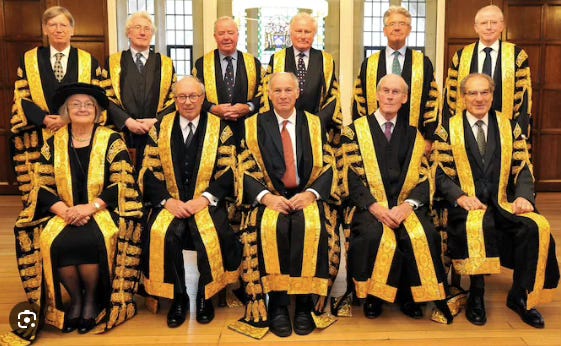
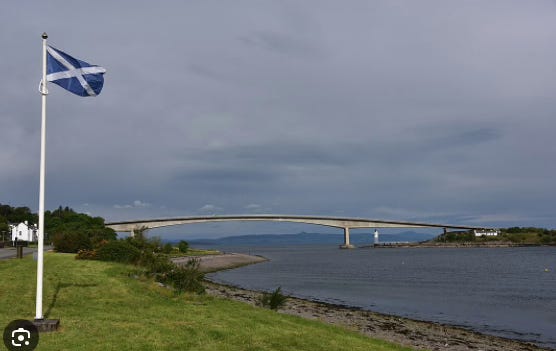

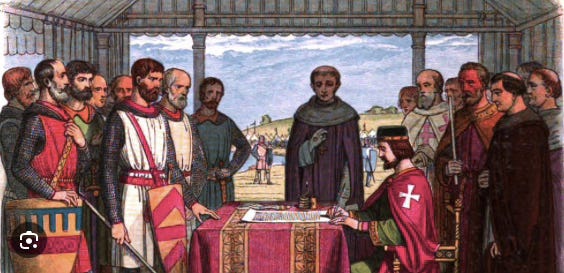
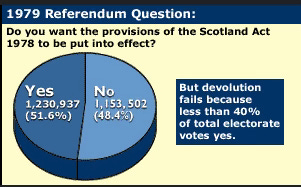
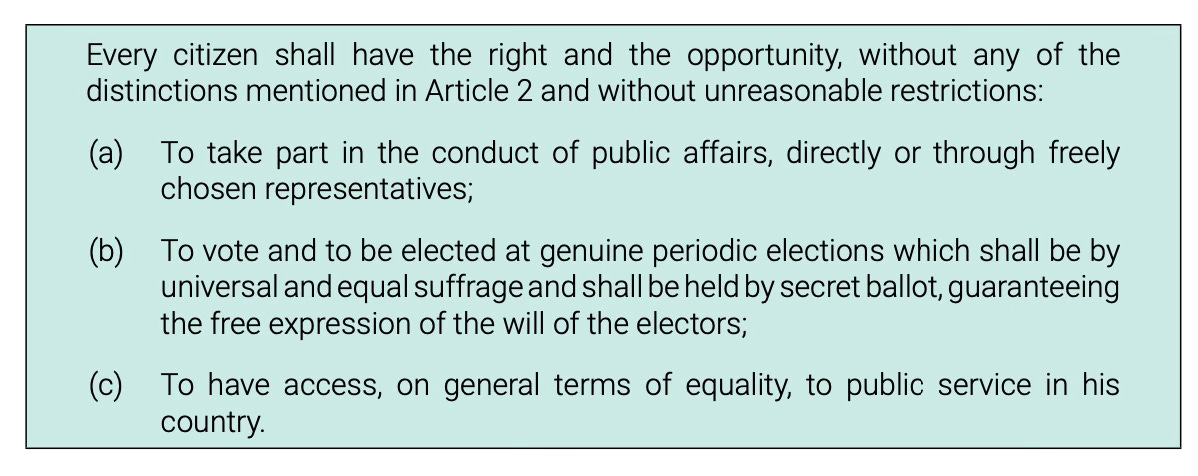
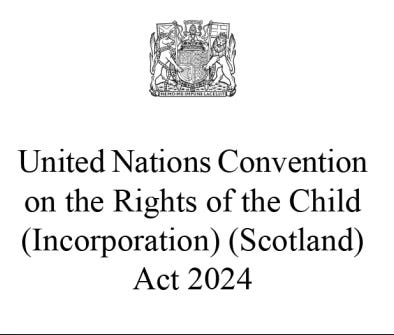

Leah
Thank you for posting Andy Anderson's excellent article.
If the SNP refuse/fail to take the steps, outlined by AA, the charges of Dereliction of Duty, should be upheld against them.
They were voted into Office (umpteen times) under their claims to be a/the Party for Scottish Independence.
For a long time, the SNP even refused to use the true and appropriate description of
'RESTORED Independent Nation of Scotland'
because Scotland WAS a Sovereign Independent Nation, WITHOUT/FREE OF DEBT.
It's unbelievable that, collectively, they CHOOSE to bow/kowtow/obey without question,
Foreign English Colonialist Dictators
and their symbiotic symbol of that English Establishment,
the ENGLISH Monarchy
It would be no shame if they had been unaware of our history, as so many Scots were/and remain, (because the English Establishment banned our history/culture/language/etc in our Schools).
However, it should have been incumbent upon them, with immediate effect, to become familiar/ inform themselves of even 'a precis of Scottish History'.
There would be no shortage of Scots, well able and happy to equip the SNP Party, with such knowledge, of which they were obligated to make themselves aware.
No argument against such obligation, would be acceptable.
That the SNP continue to ignore the hard work/research carried out by Liberation Scotland, on a legal route towards RESTORING Scotland's Independence,
is a Dereliction of Duty, as the Party of/for Independence,
as they CHOOSE to
dismiss/ignore using the route, used by many former "COLONISED" Nations,
via the UN.
Dereliction of Duty and Loyalty to WE Sovereign Scots,
a shameful stigma indeed, made worse when it's deserved.
Let's hope that they finally understand, to whom it is they answer.
This is very encouraging news! How do we go about convincing the present Scottish government to act? Despite the name of their party they don't appear to be eager to do much in the way of practical moves to help Scotland on her road to independence.